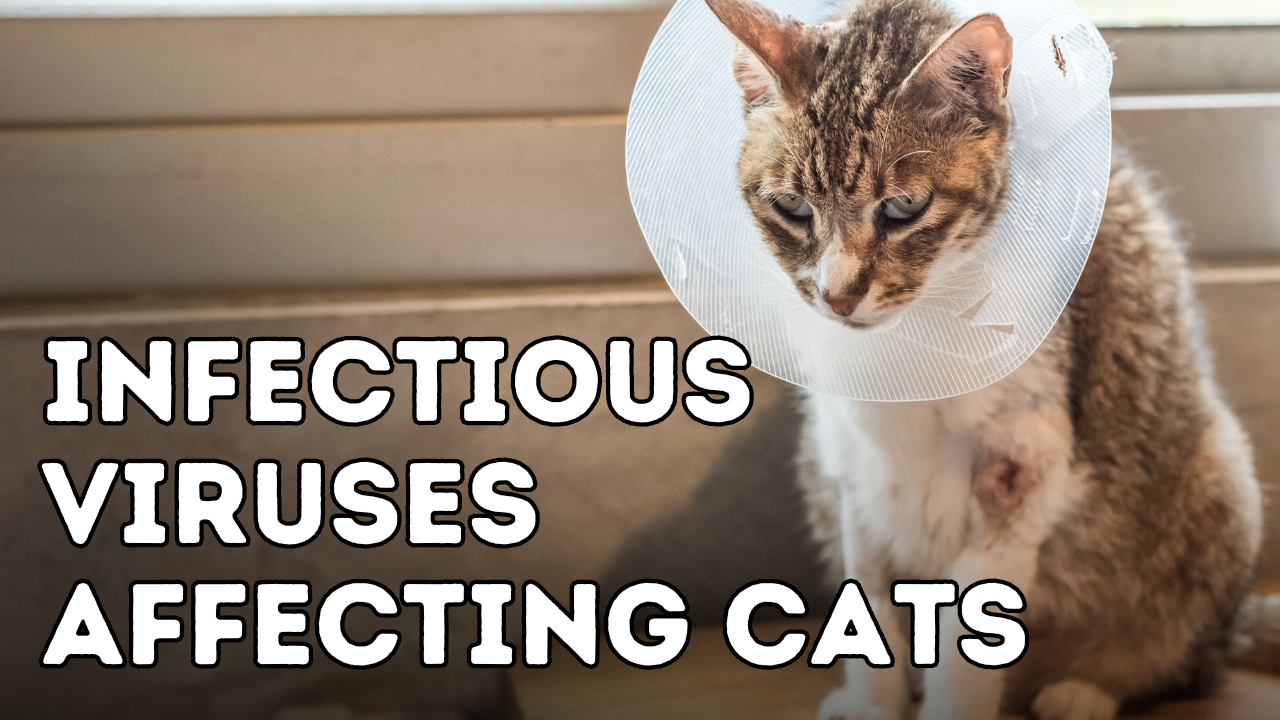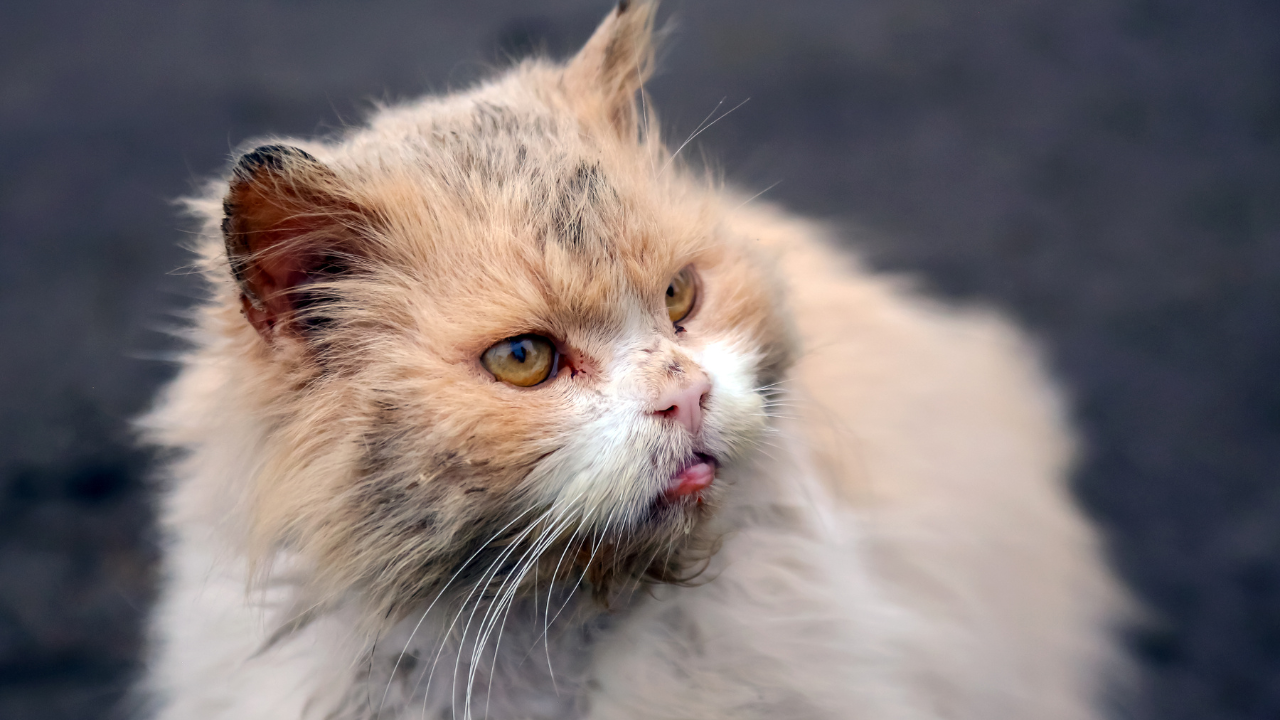Holistic Approaches to Combat Infectious Viruses in Cats

Can you really not do anything to help prevent/treat a cat with any of serious infectious viruses (FeLV/FIV/FIP)?
They are difficult to treat, and I used to say to clients…’Sorry, there is nothing we can do.’
Turns out I was partially wrong, and there are a bunch of alternative treatments that may be helpful. Some of these my even help prevent these in the 1st place.
Some of them include antioxidants, colostrum, medicinal mushrooms, and probiotics.
Our supplement ULTIMATE Feline has additional antioxidants, along with Colostrum, Medicinal Mushrooms, and Probiotics. Seems like a good idea to be on it 🙂
Click Here to get your bottle.
Ultimate Feline Health by Dr. Jones: Support Your Cat’s Vitality from the Inside Out
Dr. Jones’ Ultimate Feline Health Formula


Feline Infectious Viruses: How to Care for Your Cat with FeLV, FIV, or FIP
Hello, fellow cat lovers. I’m Dr. Andrew Jones, and today I’m diving into feline infectious viruses, focusing on Feline Leukemia Virus (FeLV), Feline Immunodeficiency Virus (FIV), and Feline Infectious Peritonitis (FIP). While these conditions are challenging, there are many ways we can support our feline friends. Let’s get started.
Understanding the Signs
Each of these diseases varies in its presentation, but they all involve chronic immune suppression, and symptoms depend on which organs are affected. Common signs include:
- Weight loss
- Severe dental disease (gingivitis)
- Chronic poor skin condition
- Cancer (lumps, enlarged lymph nodes)
- Ongoing diarrhea and recurrent fevers
In FIP cases, inflammatory tissue cells spread throughout the body, leading to potential organ failure, fluid buildup in the chest or abdomen, and often a thin body with a distended abdomen.
Causes of FeLV, FIV, and FIP
- FIV: This virus is spread through deep bite wounds during fights. Similar to the Human AIDS virus, signs may not appear until years after infection.
- FIP: FIP originates from a benign gut virus, Coronavirus. Occasionally, it mutates, leaving the intestinal tract and attacking other organs through the immune system. It is important to note that FIP is not contagious, even though many cats carry Coronavirus.
- FeLV: This virus spreads through saliva, blood (often during fights), and from mother to fetus. Some cats eliminate the virus naturally and develop immunity, but those who do not may face bone marrow infection.
Solutions for Supporting Infected Cats
Get a Diagnosis
If your cat has ongoing health issues, it’s essential to have your veterinarian test for these infectious diseases. Although there is no cure, there are many ways to improve quality of life and prevent disease spread to other cats.
If your cat tests positive for FeLV or FIV, consider testing your other household cats and vaccinating them with FeLV or FIV vaccines. There’s no need to vaccinate against FIP since it isn’t contagious.
Alternative Remedies for Immune Support
Here are some alternative options that can help support your cat’s immune system, extend their quality of life, and manage symptoms effectively.
Probiotics
Beneficial bacteria that support the immune system can help manage or prevent infectious diseases. A study on FIV suggests probiotic bacteria may restore intestinal homeostasis. I recommend a daily dose of 1 billion CFU’s per 10 lbs of body weight. Our supplement, Dr. Jones’ ULTIMATE Probiotic Formula for Cats, is an excellent choice.
Quercetin (Beneficial Flavonoid Found in Apple Peel)
A Boston University study links a nutrient-dense diet rich in quercetin and other antioxidants with a reduced cancer risk. Quercetin might help prevent cancer and has antiproliferative effects on cancer cells. I suggest a daily dose of 50 mg per 10 lbs of body weight. You can try Dr. Jones’ Bioavailable QUERCETIN for Cats.
Powerful Antioxidant Support for Dogs and Cats: Dr. Jones’ BioActive Quercetin
Dr. Jones’ Bioavailable QUERCETIN for Cats.

Colostrum
Colostrum, the first milk produced by mothers, offers immune support and may benefit cats with infectious diseases. I recommend Bovine Colostrum (100 mg per 10 lbs daily) as a safe, effective supplement.
Cannabinoids (CBD)
CBD and other cannabinoids may benefit cats with FeLV, FIV, or FIP by regulating cell proliferation and offering protection against cancer. The standard dose is 3 mg per 10 lbs once or twice daily. You can find Dr. Jones’ ULTIMATE CBD for Cats on my website.
Dr. Jones’ Natural Cannabinoid Health Boost for Dogs and Cats
Dr. Jones’ Ultimate Cannabinoid Blend for Dogs and Cats

Essential Fatty Acids (EFAs)
Omega-3 EFAs, like Krill Oil, have been shown to reduce cancer risk and improve quality of life. A standard EFA dose is 500-1000 mg per 50 lbs daily. Our Krill Oil supplement is highly recommended for your cats.
Medicinal Mushrooms
- Turkey Tail Mushroom: Used for cancer treatment in Japan for over 30 years. It’s safe and works well alongside chemotherapy drugs. The dose is 100 mg per 10 lbs twice daily.
- Reishi Mushroom: Especially beneficial for cats with lymphoma. The recommended dose is 100 mg per 10 lbs once or twice daily.
Homeopathic Remedies
- Ferrum Phos: For fever with no other severe symptoms, 30C every 4 hours for 2-3 days.
- Pulsatilla: For UTIs and immunosuppression, 30C every 4-6 hours for 2-3 days.
- Phosphorus: For very weak pets needing support, use 30C every 4-6 hours for 2-3 days.
Artemisinin
This is a unique class of antimalarial drugs repurposed for cancer. It has a great safety profile, making it an affordable and effective option for pets with cancer. Use 30 mg per 10 lbs once or twice daily.
Panacur (Fenbendazole)
An old veterinary dewormer with potential cancer benefits. The recommended dose is 50 mg/kg for 3 days on/4 days off for 30 days. If effective, continue for another 90 days or 10 mg/kg once daily. Panacur may be a suitable option for cats with FeLV, FIV, or FIP.
While it’s true that some cats with these infectious diseases may not have a favorable prognosis, others respond remarkably well to alternative treatments like Colostrum or Cannabinoids.
P.S. I highly recommend additional antioxidant support, Colostrum, medicinal mushrooms, and probiotics. Dr. Jones’ ULTIMATE Feline Health Formula is a complete supplement that offers long-term preventive health care and is one of the most comprehensive options available.

I fostered a litter of kittens that had herpes virus. One kitten still has severe nasal discharge and watering eyes. Is there an herb that I can give her to help with the mucus and breathing? I am keeping her and she is now 6 months old and not any better.
Hi Lynn, you can try: AMINO ACID LYSINE. L-lysine has proven antiviral activity, and is a mainstay in treating and curing cats with recurrent Herpes Virus respiratory infections.
Dr. Jones’ Ultimate Feline contains l-lysine: https://thecatsupplement.com
I have a kitten with wet FIP she is very lethargic; Vet don’t have the medication for it. What can I do to support her recovery.
Provide immune-supporting supplements such as probiotics, antioxidants, and colostrum.
veterinarysecrets.com Ensure very good nutrition: a high-quality diet, easily digestible, warm, and palatable, to help during lethargy. Create a calm, warm, quiet environment for her to rest, with minimal stress. Keep her well hydrated and comfortable—monitor fluid accumulation (abdomen/chest) and seek veterinary help if breathing is impaired or swelling increases. Maintain close contact with your vet: ask about any off-label medication options, fluid therapy, and whether a referral to a feline specialist is possible.